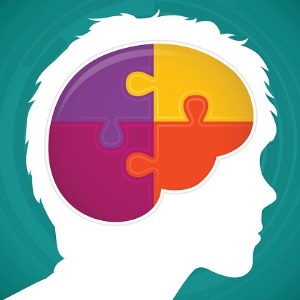
Autism spectrum disorder (ASD) is a group of developmental conditions that affect communication and behaviour. It’s called a “developmental condition” because signs show up in the first two years of life.
The symptoms usually include ones that show challenges with social skills, behaviour, speech and non-verbal behaviour. These signs usually appear between the ages of two to three. It can also be found in children as young as 18 months.
Major risk factors for ASD is having a sibling and/or elderly parents with ASD, a very low birth weight and a genetic disease like Down syndrome. Common symptoms for autism differ depending on what kind or level of autism you have.
Common symptoms include making little eye contact with people, having difficulty communicating with others and repeating behaviour, words and phrases.
Other symptoms in a child may include:
- Hardly showing enjoyment over things or events.
- Showing facial expressions that don’t match what’s being said by others.
- Not looking at or listening to others when they speak.
- Struggling to have a back and forth conversation.
- Using an unusual tone of voice.
- Struggling to understand another person’s point of view and being unable to understand other people’s actions/reactions.
- Getting upset by slight changes in routine.
- Being highly sensitive to changes in light, noise, clothing and temperature.
Besides these, those on the spectrum may also have strengths like excelling at maths, science music and art. They may also have excellent memories and be able to retain information for long periods.
Diagnosing autism
Diagnosing autism can be difficult as there’s no medical test for it. Doctors usually look at a child’s behaviour and development to check for symptoms. For example, a doctor may play with a child to check how they behave with others and if they struggle to learn. Parents are often interviewed about how their child learns, speaks and behaves. Treatment for autism depends on the needs of the child and the symptoms they suffer from. Although autism can’t be cured, there are a few treatment options to help manage the effects of autism. These could include:
Occupational therapy
This helps your child learn life skills he may struggle with, like feeding himself, bathing and interacting with people. It aims to make your child as independent as possible.
Sensory integration therapy
If your child is easily upset by loud sounds, interacting with others or bright lights, this therapy can help him learn to adjust to these kinds of sensory information.
Medication
There’s currently no medication that can treat autism. However, certain medication may be given to help manage symptoms like insomnia, depression and trouble focusing.
Good to know
- All children should be checked for any delays or disabilities during regular doctor’s visits. They should be ideally checked at nine months, 18 months, and 24 or 30 months.
- If a child is at high risk for developmental problems, more checks should be done.
- Studies have shown that medication is most effective if done alongside behavioural therapies.





 Publications
Publications
 Partners
Partners














